
Suzanne Nadine Vega is an American singer-songwriter of folk-inspired music. Vega's music career spans almost 40 years. In the mid-1980s and 1990s she released four singles that entered the Top 40 charts in the UK, "Marlene on the Wall", "Left of Center", "Luka" and "No Cheap Thrill".

The Choirboys are an Australian hard rock and Australian pub rock band from Sydney formed as Choirboys in 1979 with mainstays Mark Gable on lead vocals, Ian Hulme on bass guitar, Brad Carr on lead guitar and Lindsay Tebbutt on drums. In preparation for their second album Big Bad Noise in 1988, the band changed their name to The Choirboys. The band line-up saw many changes from 1983 to 2007, while releasing 8 studio albums. Their 1987 single "Run to Paradise" remains their biggest commercial success.
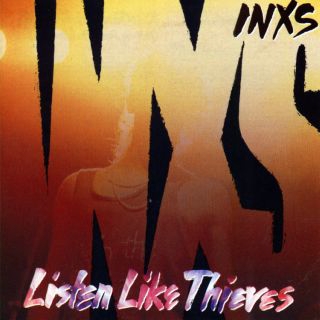
Listen Like Thieves is the fifth studio album by Australian rock band INXS. It was released on 14 October 1985. It spent two weeks at number one on the Australian Kent Music Report Albums Chart. Considered an international breakthrough album for the band, it peaked at No. 11 on the United States Billboard 200, No. 24 on the Canadian RPM 100 Albums and in the top 50 in the United Kingdom.
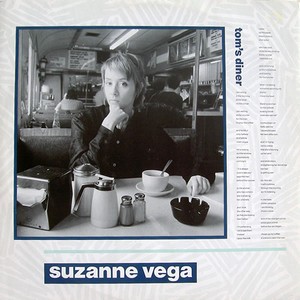
"Tom's Diner" is a song by American singer and songwriter Suzanne Vega. Written on November 18, 1981, it was first released as a track on the January 1984 issue of Fast Folk Musical Magazine. Originally featured on her second studio album, Solitude Standing (1987), it was released as a single in Europe only in 1987 following the success of her single "Luka". It was later used as the basis for a remix by the British group DNA in 1990, which reached No. 1 in Austria, Germany, Greece and Switzerland.

Solitude Standing is the second studio album by American singer-songwriter Suzanne Vega, released on April 1, 1987, by A&M Records. It is the most commercially successful and critically acclaimed album of Vega's, being certified Platinum in the US and reaching number 11 on the Billboard 200.

"Luka" is a song written and performed by American singer-songwriter Suzanne Vega, released as the second single from her second studio album, Solitude Standing (1987), in May 1987. It remains her highest-charting hit in the United States, reaching No. 3 on the Billboard Hot 100. Worldwide, the song charted the highest in Sweden, peaking at No. 2, and reached the top 10 in Austria, Canada, New Zealand, and South Africa. Shawn Colvin sings background vocals on the record.
"When You Walk in the Room" is a song written and recorded by Jackie DeShannon. It was initially released as a single on November 23, 1963, as the B-side to "Till You Say You'll Be Mine". It was re-released as an A-side in September 1964, and later included on the album Breakin' It Up on the Beatles Tour. The single charted on the US Billboard Hot 100, peaking at number 99.
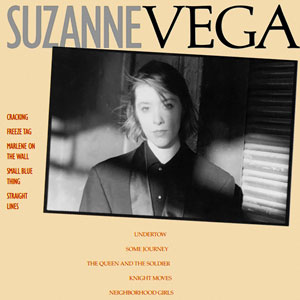
Suzanne Vega is the debut studio album by American singer-songwriter Suzanne Vega. It was released on May 1, 1985 through A&M Records. The album was primarily recorded at Celestial Sound in New York City and was produced by Steve Addabbo and Lenny Kaye.

"Glory of Love" is a 1986 song performed by Peter Cetera, which he wrote and composed with his then-wife Diane Nini and David Foster. The song was recorded by Cetera shortly after he left the band Chicago to pursue a solo career. Featured in the film The Karate Kid Part II (1986), it was Cetera's first hit single after he left the band, reaching number one on the Billboard Hot 100, and it was included on his album Solitude/Solitaire (1986), which Michael Omartian produced.
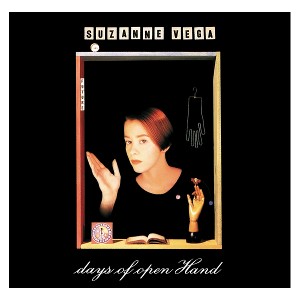
Days of Open Hand is the third studio album by Suzanne Vega. It was released on April 10, 1990, through A&M Records. The album was the follow-up to the successful Solitude Standing (1987). It was produced by Vega and Anton Sanko, who also co-wrote six of the album's eleven tracks. Recording took place across multiple studios throughout New York from late 1989 to early 1990.
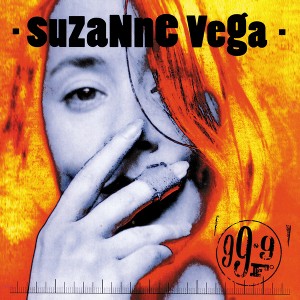
99.9F° is the fourth album by American singer and songwriter Suzanne Vega. Released in 1992, the album marked a departure for Vega, as she embraced a more electronic, experimental sound. It peaked at No. 86 on Billboard magazine's album chart and was Vega's fourth Top 20 album in the UK. The single "Blood Makes Noise" reached number one on the Billboard Modern Rock chart. 99.9F° was the first of two of Vega's albums to be produced by Mitchell Froom, whom she later married.

Songs in Red and Gray is the sixth studio album by American singer-songwriter Suzanne Vega. It was released on September 25, 2001 by A&M Records.

Beauty & Crime is the seventh studio album by singer-songwriter Suzanne Vega. It is her first album of new material since 2001's Songs in Red and Gray and her first for Blue Note Records. It was released on July 17, 2007. Beauty & Crime won the Grammy Award for Best Engineered Album, Non-Classical, on February 11, 2008. It was dedicated to Tim Vega, Suzanne's younger half-brother who had died in 2002.

Three Hearts in the Happy Ending Machine is the second solo album by American singer-songwriter Daryl Hall, released in 1986. The album features his only top-ten solo single, "Dreamtime", which peaked at number five on the Billboard Hot 100. The second single, "Foolish Pride", peaked at number 33.
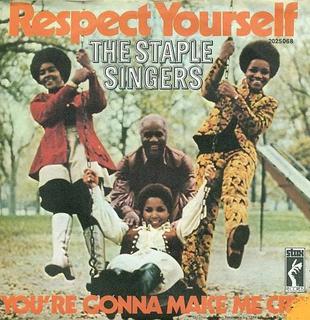
"Respect Yourself" is a song by American R&B/gospel group the Staple Singers. Released in late 1971 from their album Be Altitude: Respect Yourself, the song became a crossover hit. The Staple Singers' version peaked at No. 12 on the Hot 100, No. 2 on the Hot Soul Singles chart, and is one of the group's most recognizable hits. In 2002, the song was inducted into the Grammy Hall of Fame, and in 2010 it was ranked #468 on the Rolling Stone list of the 500 Greatest Songs of All Time, moving down 4 spots from #464 in 2004.

Deadicated: A Tribute to the Grateful Dead is a 1991 tribute album with music of the Grateful Dead performed by various artists.

Close-Up Vol. 2, People & Places is the ninth studio album released by New York–based singer/songwriter and musician Suzanne Vega. The album consists of re-recordings of songs from Vega's back catalogue with stripped-down arrangements that highlight her lyrics and melodies. The track "The Man Who Played God" was included in its original version on the album Dark Night of the Soul, by Danger Mouse and Sparklehorse.

"Should've Known Better" is a hit song written, composed, and performed by American rock singer Richard Marx. It was released in September 1987 as the second single from his Triple Platinum-selling self-titled debut album. The song peaked at number three on the US Billboard Hot 100 as well as #7 on the Billboard Mainstream Rock Tracks chart in 1987 and #4 on the Radio & Records CHR/Pop Airplay chart.

Tales from the Realm of the Queen of Pentacles is the eighth studio album by the American singer-songwriter Suzanne Vega.
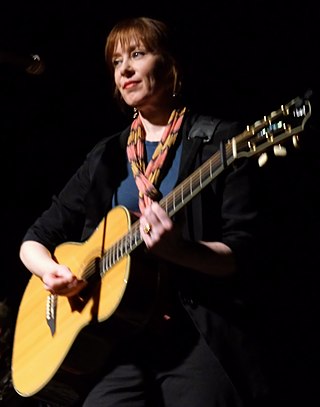
The discography of American singer Suzanne Vega consists of nine studio albums, four acoustic albums, two greatest hits albums, one box set, seven live albums, one extended play, and 23 singles.



















